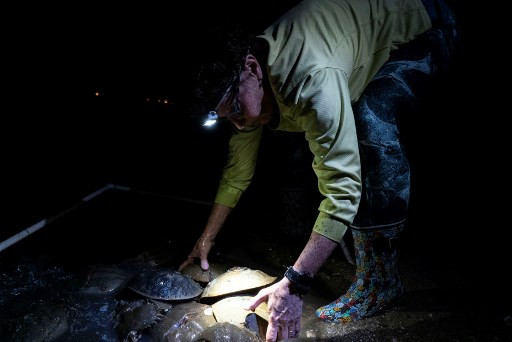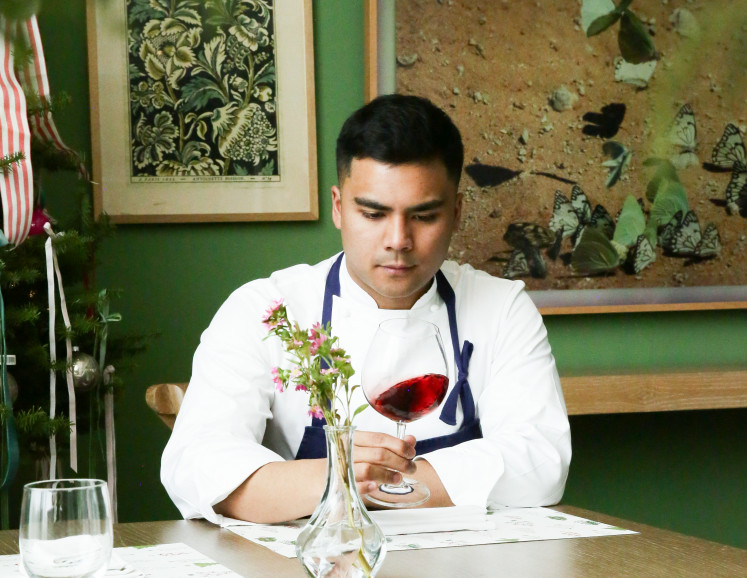Popular Reads
Top Results
Can't find what you're looking for?
View all search resultsPopular Reads
Top Results
Can't find what you're looking for?
View all search resultsHorseshoe crabs: 'Living fossils' vital for vaccine safety
Now, though, the "living fossils" are listed as vulnerable in America and endangered in Asia, as a result of habitat loss and overharvesting for use in food, bait, and the pharmaceutical industry, which is on a major growth path, especially in the wake of the COVID-19 pandemic.
Change text size
Gift Premium Articles
to Anyone
 Tara Petrilli, of Lancaster, Pennsylvania, conducts a survey of horseshoe crabs spawning on a beach at the Ted Harvey Wildlife Area near Dover, Delaware, on June 17, 2022. On a bright moonlit night, a team of scientists and volunteers head out to a protected beach along the Delaware Bay to survey horseshoe crabs. If you've ever had a vaccine in your life, you have these weird sea animals to thank: their bright blue blood, which clots in the presence of harmful bacterial components called endotoxins, has been essential for testing the safety of biomedical products since the 1970s, when it replaced rabbit testing. (AFP/Bastien Inzaurralde)
Tara Petrilli, of Lancaster, Pennsylvania, conducts a survey of horseshoe crabs spawning on a beach at the Ted Harvey Wildlife Area near Dover, Delaware, on June 17, 2022. On a bright moonlit night, a team of scientists and volunteers head out to a protected beach along the Delaware Bay to survey horseshoe crabs. If you've ever had a vaccine in your life, you have these weird sea animals to thank: their bright blue blood, which clots in the presence of harmful bacterial components called endotoxins, has been essential for testing the safety of biomedical products since the 1970s, when it replaced rabbit testing. (AFP/Bastien Inzaurralde)
O
n a bright moonlit night, a team of scientists and volunteers head out to a protected beach along the Delaware Bay to survey horseshoe crabs that spawn in their millions along the US East Coast from late spring to early summer.
The group make their way up the shoreline laying a measuring frame on the sand, counting the individuals inside it to help generate a population estimate, and setting right those unfortunate enough to have been flipped onto their backs by the high tide.
With their helmet-like shells, tails that resemble spikes and five pairs of legs connected to their mouths, horseshoe crabs, or Limulidae, aren't immediately endearing.
But if you've ever had a vaccine in your life, you have these weird sea animals to thank: their bright blue blood, which clots in the presence of harmful bacterial components called endotoxins, has been essential for testing the safety of biomedical products since the 1970s, when it replaced rabbit testing.
"They're really easy to love, once you understand them," Laurel Sullivan, who works for the state government to educate members of the public about the invertebrates, tells AFP.
"They're not threatening at all. They're just going about their day, trying to make more horseshoe crabs."
For 450 million years, these otherworldly creatures have patrolled the planet's oceans, while dinosaurs arose and went extinct, and early fish transitioned to the land animals that would eventually give rise to humans.


















